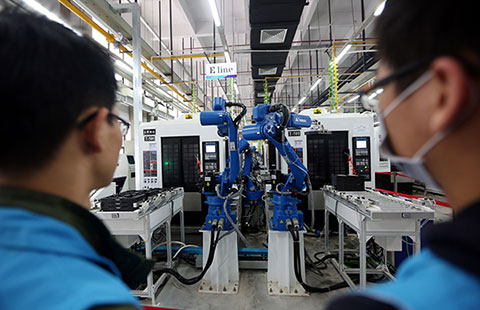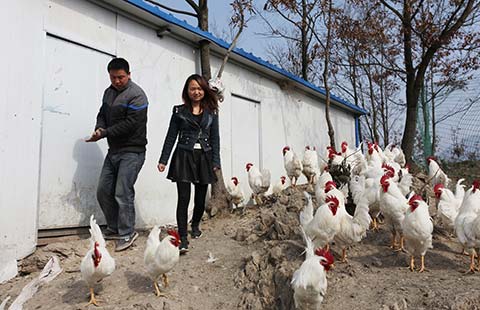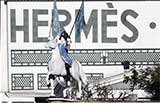Anhui farmers eye premium opportunities from prime porkers
By Zhu LiXin and Ma Chenguang (China Daily) Updated: 2016-03-25 08:13"Even without imported pork, domestic output can almost satisfy the needs of Chinese consumers," said Fu Yan, vice-president of Ningbo TechBank Co, one of China's largest breeders of white hogs.
But Zhou said the supply of black pigs, which fatten much more slowly and are of better quality, cannot meet the market demand for high-end pork products that are favored by more Chinese consumers.
In the early years, Zhou's company was devoted to protecting the pig species from dying out. Starting in 2014, the company made pork available to the market. Last year, the company sold 1.07 million kilograms of pork products from Liubai black pigs, 16 percent more than the previous year.
During the Spring Festival holiday, which concluded on Feb 13, sales topped 75,600 kilograms, 9 percent more than the same period last year, the company said.
Most of the pork was sold in more developed areas, such as the neighboring Jiangsu and Zhejiang provinces, according to Zhou, adding that the company is planning to open more stores in the provinces this year.
"Consumers in the province have better purchasing power and higher needs for high-quality pork," Zhou said.
According to the contract with Xiandai, He must sell his pigs to the company at a price of 18.4 yuan per kilogram.
"It is by cooperating with such local breeders like He that we can effectively increase the supply," said Zhou, whose company has also acquired some piggeries in the past two years.
Yu Xianming had been breeding white pigs since 2008, but sold his piggery, which has a capacity to breed more than 20,000 pigs, to Zhou's company at the end of last year.
Breeding regular white pigs had always been risky, since the market fluctuates, Yu said.
"I had seen total losses of 8.8 million yuan in 2013 and 2014, when the pork prices of white pigs dropped even as feed costs were climbing steadily," Yu said.
Yu, who is still managing the business after its sale, recently dug a well to bring underground water to the piggery, which is about 50 kilometers from He's farm.
To feed the farm's current population of 4,000 pigs, Yu also recently bought more than 100,000 kilograms of carrots from Shandong province at a cost of about 0.45 yuan per kilo. Xiandai covered all of the costs.
- Northeastern provinces set for tech boost
- Boao forum calls for more support in infrastructure
- Chongqing, Zhoushan favorites as new free trade zones
- Import surge will boost service trade with developed countries
- Manufacturers in China urged to think smarter
- Top 10 most valuable Chinese brands in technology
- Confidence, patience needed in understanding Chinese economy: Aussie economist
- Global property to gain from increased market in 2016
















